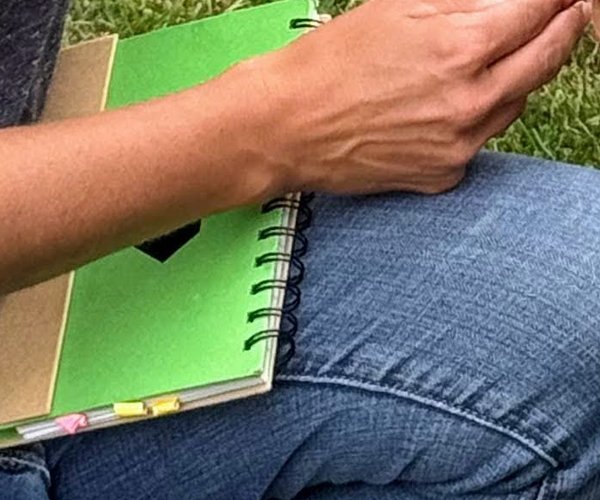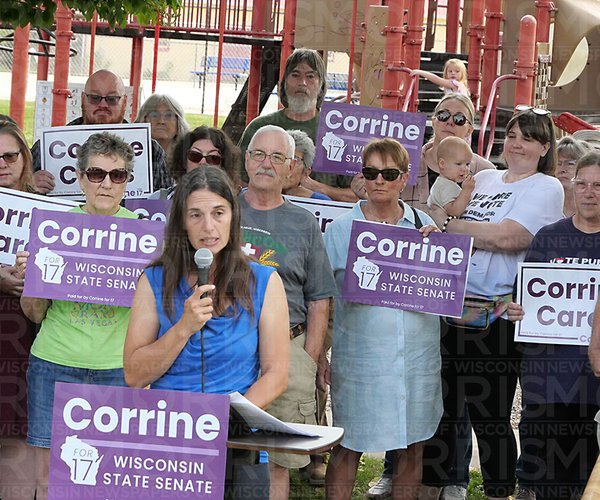MONROE — Several area school districts will join nearly half of all districts in the state that are seeking voter approval for new money through so-called “operating referendum” questions on the Nov. 5 ballot.
In this region, Monroe, Darlington, Juda, Argyle and Albany, districts are using the upcoming election to try to secure more funding.
School officials, daunted by state funding woes, are nonetheless optimistic that their local ballot measures will pass, especially in what is anticipated to be a high-turnout election in battleground Wisconsin.
“I think our community is very supportive of our schools and I think they will be again,” said Argyle School District Business Manager Megan Leonard.
Faced with declining enrollment, some school districts across the state are being forced to close and consolidate schools to reduce costs, especially operational expenses. For others — including 137 districts in Wisconsin this election — an operating referendum is the only way to avoid that fate.
“Unfortunately, the District finds itself in the same position as many other districts due to a lack of state funding, inadequate reimbursement for federally mandated programs, and elimination of federal funds provided during the COVID era,” said the Albany school district website.
Statewide, many competitive legislative races have centered on the debate over state aid for K-12 public schools. During the most recent state budget, lawmakers increased public school funding by $1 billion, though that increase was tied to additional funding for public charter and private voucher schools as well. And as federal pandemic relief funds expire for Wisconsin school districts, Gov. Tony Evers and legislative Democrats are likely to push for further public-school funding increases in next summer’s budget negotiations.
In the meantime, districts are doing what they can to plug the budgeting holes.
For School District of Monroe taxpayers, the 2024-25 operational budget deficit continued to grow despite nearly $1 million in cuts made earlier in 2024. The district last passed an operational referendum in 2016, and most recently in 2022 passed an $88 million capital referendum to build a new high school and update Abraham Lincoln Elementary.
Years of a lack of state funding and an expiring operating referendum meant the district would be facing more than a $3 million shortfall this upcoming school year. While painful, the district nonetheless already found a way to save more than $900,000 through a combination of cuts in staff and third-party vendors.
For its referendum, Monroe wants to exceed the revenue limit by $1.5 milllion per year for four years, beginning with the 2024-2025 school year and ending with the 2027-2028 school year.
“A passed referendum will allow the District to maintain the current educational services and program offerings available to students and would help maintain District staffing at close to the current level for the next four years,” officials said in an online referendum promotion.
The Darlington School District is requesting a recurring, $1.9 million dollars for operating expenses per year, starting in 2026. The current school referendum, which has remained unchanged since 2021 when it was last approved by voters, is the result of the state aid deficit that has been ongoing, district officials say.
“For the past 15 years, the Darlington School District has received a financial lag per student against inflation, at a financial deficit cost of $3,300 per student,” the district said on its website. “When multiplied by the 900 students that are in the district, the total tallies $2,970,000, which is more than the proposed referendum.”
Superintendent Cale Jackson said this is his second recurring referendum in Darlington. It is much easier on school officials, he said, to seek approval to continue the same operating referendum as an expired one, and one that does not seek new money or money for buildings.
“Nothing is going to change tax-wise,” he said. “We are just asking to keep what we had.”
Still, Jackson said he is not taking any chances.
“I’m trying to get the word out any way possible,” he said.
Following the failure of a referendum last spring, Juda is asking to exceed the revenue limit by $350,000 beginning with the 2024-2025 school year on a recurring basis; $150,000 for the 2024-2025 school year through the 2028-2029 school year on a non-recurring basis “to pay costs of capital projects including, but not limited to, boilers, parking lot improvements, building maintenance and repairs and upgrades to the Career and Technical Education services area …”
Juda Superintendent Traci Davis said she is more optimistic the next referendum will pass, judging from the level of community engagement she says she has experienced this time around. The stakes for the small school district, she said, could not be higher.
“It would be a huge issue if it failed,” said Davis. “We would have to look at reducing people and programs and no one wants to think about that.”
In Albany, a non-reoccurring referendum question has officials seeking authorization to exceed the revenue limit by $1.25 million per year for three years, beginning with the 2024-2025 school year; and ending with the 2026-2027 school year, for non-recurring purposes.
The referendum in Argyle asks voters to exceed state revenue limits by $310,000 for the 2024-2025 school year (and to remain at that amount for the 2025-2026 school year), and by an additional $490,000 for the 2026-2027 school year (for a total of $800,000) and to remain at that amount thereafter.
Davis said she and other superintendents know voters are being asked to handle a lot of issues on Nov. 5, but that she hopes the schools will rise above the din as a priority.
“We know that this fall there are a lot of decisions to be made during the fall elections,” she said, in a letter about the referendum. “At this time schools have limited choices to receive the funding that is needed to continue to provide instruction, programs, safe buildings and staffing for our schools.”





